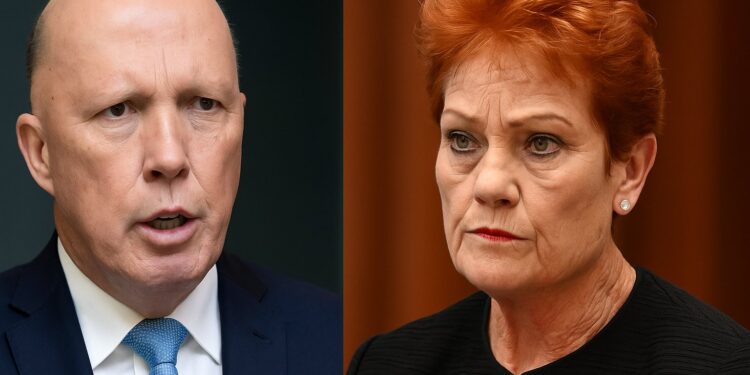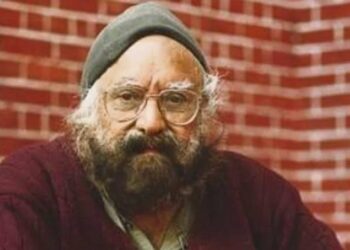In the lead-up to the federal election, many within Australia’s Indian community are weighing their political choices with business pragmatism in mind. Some are leaning towards the Liberal-led Coalition, believing their policies are better for enterprise and entrepreneurship. But as members of a proudly multicultural nation, we must pause and ask: at what cost?
This week, the ABC revealed a preference deal between the Coalition and Pauline Hanson’s One Nation party—one that should deeply concern every migrant, especially those of South Asian descent. For Indian Australians, this isn’t just politics. It’s personal.
One Nation has never been a friend to migrants
Let us not forget who Pauline Hanson is. In her infamous 1996 maiden speech, she railed against Asian immigration, claiming we were “swamping” Australia. Her words targeted not just Chinese Australians, but all Asians—including Indian migrants. These weren’t mere dog whistles—they were foghorns of hate.
In 2016, she declared that the Racial Discrimination Act should be scrapped, and launched attacks on Islamic Australians and the very principles of multiculturalism. She has questioned the legitimacy of Aboriginal land rights and used parliamentary privilege to spread division. Just last year, Senator Mehreen Faruqi—a fellow migrant of South Asian background—won a landmark court case after Hanson published a racist tweet suggesting she “go back” to where she came from. This is the party the Liberals are now trading preferences with.
A vote for the Coalition could help One Nation gain power
Let’s be clear: in most electorates, a vote for the Liberals doesn’t end with them. Due to Australia’s preferential voting system, your vote may flow directly to One Nation. That means your well-intentioned support for business-friendly policies could empower a party with an openly xenophobic agenda—one that has built its brand by vilifying people like us.
Is it really worth bolstering a movement that has never stood for us, never respected our contributions, and never believed we truly belong?
Peter Dutton’s record raises serious concerns
Beyond the Coalition’s alliance with One Nation, Opposition Leader Peter Dutton’s own rhetoric and policies warrant scrutiny. Dutton has repeatedly blamed migrants for Australia’s housing crisis, proposing a 25% cut to permanent migration, equating to about 100,000 fewer places annually, under the premise that this would free up homes for Australians. However, experts argue that such measures would have minimal impact on housing affordability and could harm the economy by reducing the skilled workforce essential for various sectors.
Moreover, Dutton’s approach to immigration has been criticised for lacking inclusivity and for scapegoating migrants for broader systemic issues. His stance risks fostering division and undermining the multicultural fabric that defines modern Australia.
Business success should not come at the cost of dignity
As a community, we value hard work, enterprise, and success. Indian Australians are among the most highly educated and economically mobile migrant groups in the country. But dignity, safety, and social cohesion are worth far more than a tax break or a regulatory tweak.
Pauline Hanson and One Nation have built a political career on the backs of people like us—by painting us as threats, outsiders, or worse. And now, the Coalition is not only legitimising her views through preference deals, but potentially giving her party more influence in government.
This is not the Australia our parents migrated to. Nor is it the Australia we want to leave for our children.
Diversity isn’t just right—it’s good for business
Let’s also remember: inclusive politics isn’t just morally right, it’s economically smart. Studies consistently show that diversity drives innovation, strengthens productivity, and opens new markets. Countries and companies that embrace multiculturalism are more adaptable, more competitive, and more attractive to international talent and investment. Racism, on the other hand, stifles creativity, deters skilled migrants, and weakens social cohesion—making it harder for business and society to thrive.
We must vote with awareness—and unity
In 2016, when Hanson tried to weaken the Racial Discrimination Act, it was the united voices of ethnic and religious communities—including ours—that stopped her. That unity is needed again today.
The next election isn’t just about economic policy. It’s about what kind of nation we want to be part of. One that respects all backgrounds and defends its multicultural values—or one that turns a blind eye to bigotry in exchange for political gain.
To all our fellow Desis: think beyond short-term business interests. Think of our collective future. Don’t let your vote be used to empower those who want to divide us.
We’ve come too far to be silent now.











